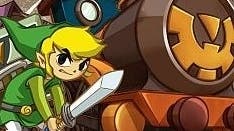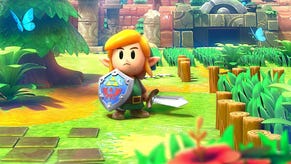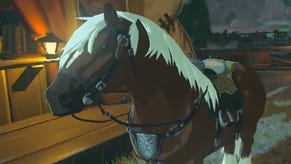The Double-A Team: The Legend of Zelda: Spirit Tracks is a forgotten adventure with great heart
Station to station.
In the mid 2000's The Legend of Zelda was in the midst of an identity crisis. After twenty years of steady success, the landmark series had become a victim of its own longevity, as the need to innovate clashed up against the expectations of an aging fanbase. Wind Waker was declared too cartoonish and suffered poor sales compared to its predecessors. 'The Legend of Zelda is not for children!', cried men who had played Legend of Zelda as children. 'I demand a serious mature game, to reflect my serious mature life!'
The solution was a split. While the so-called 'Adult' timeline continued on the GameCube and later the Wii, the cell-shaded, kid friendly world of Wind Waker was transplanted to handheld consoles. The first of these games was a fun if narratively confused ride that suffered from sluggish pacing, but the second - Spirit Tracks, or Whistle of the Wide World in Japanese - was exceptional.
Gameplay-wise, the main gimmick of Spirit Tracks is the train. This reportedly raised a few eyebrows at Nintendo during development. Aren't trains a bit... industrial? What's next, Link on an airliner?
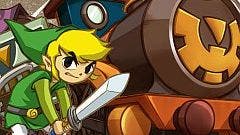
But such complaints miss the point. Trains mean tracks and whistles and squealing brakes, obscure little stations in foreign climes. They mean leaning out the compartment with the thrilling feeling of being carried along just a little faster than you should. In short, trains mean adventure. The controls are presented on-screen, so that instead of dutifully pressing some button or other you're yanking horns and cranking handles, desperately trying to outpace an enemy or pull off a wheel-raising turn - all while listening to a euphoric soundtrack that matches up to the chugging rhythm of the engine. There's a sense of scale to Spirit Tracks stretching far beyond what could be expected of the hardware. Whether you're gliding over ocean rails or edging your way up the spiral staircase in the Tower of Spirits, the world always feels limitlessly expansive, just begging to be explored.
For a little kid, the only thing more exciting than taking a train to an unknown place is making a new friend. Spirit Tracks brings this feeling in spades. After getting reverse-exorcised by the villains, Zelda (now a ghost) teams up with Link on a quest to get her body back, turning his solo adventure into a supernatural buddy comedy.
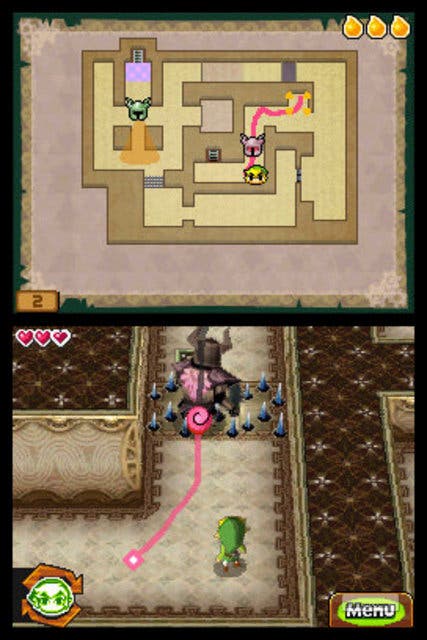
As a human being Zelda is regal and dignified, but as a ghost she's high-strung, cowardly, out of her depth... and enormously likeable. But it's in her relationship with Link that the writing really shines. There's no portentousness, no forced grandiosity: just two kids running around making trouble. It's like every brief, magical friendship you ever made on a summer holiday, when everything in the universe was waiting to be uncovered, and two weeks felt like a year.
And look, a princess on a quest to save herself might sound like Baby's First Femenism. But in the ever-static world of Zelda, there is something gently radical about this plotline. It resonated when I was twelve and it still resonates today.
Granted, Spirit Tracks doesn't reinvent the wheel. The basic dungeon-hopping formula is as old as the series itself, and mechanically it owes a huge amount to Phantom Hourglass, which did the hard work of figuring out how to bring Link back to the small screen(s).
What it really brings to the table is heart. Two friends on a train. Menacing villains, wise mentors, goofy side-characters. A ghibli-esque overworld to explore. And I really cannot stress enough how good the soundtrack is. Maturity be damned: this is joy at the tip of a stylus.
